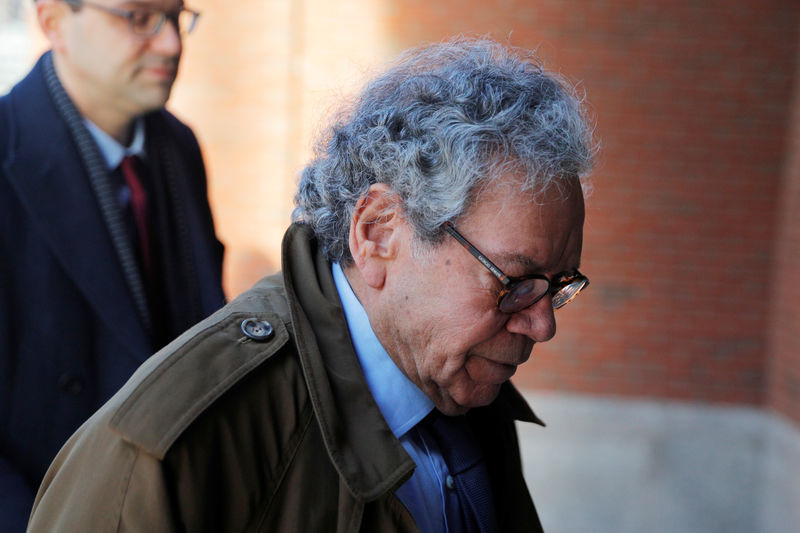By Nate Raymond
BOSTON (Reuters) - A federal judge on Tuesday partially overturned the convictions of Insys Therapeutics Inc's founder and three former executives accused of bribing doctors to prescribe an addictive opioid, but declined to disturb the remainder of the jury's verdict.
U.S. District Judge Allison Burroughs in Boston ruled the evidence prosecutors presented at trial did not support finding that John Kapoor and the others intended for doctors to prescribe the drug, Subsys, to patients who did not need it.
The ruling could impact the eventual sentence received by Kapoor, the highest-ranking pharmaceutical executive to be convicted in a case tied to the deadly U.S. opioid addiction epidemic.
Chandler, Arizona-based Insys filed for bankruptcy in June days after striking a $225 million settlement with the U.S. Justice Department.
A federal jury found Kapoor, its onetime chairman, guilty in May of running a wide-ranging scheme to bribe doctors nationwide by retaining them to act as speakers at sham events ostensibly meant to educate clinicians about its fentanyl spray, Subsys.
But in her 85-page ruling, Burroughs said prosecutors failed to establish that Kapoor and his co-defendants intended for doctors to abdicate their duties to their patients and prescribed them Subsys for non-legitimate medical uses.
"Even though the evidence could be readily understood as proving that defendants did not care whether patients needed the drug, that still is not enough to prove the requisite intent," Burroughs wrote.
As a result, she vacated the convictions of Kapoor and three former executives, Richard Simon, Sunrise Lee and Joseph Rowan, for conspiring to illegally distribute a controlled substance and commit honest services fraud.
Those were some of the so-called predicate acts underlying their racketeering conspiracy conviction. She declined to overturn the related mail fraud and wire fraud convictions of those four and another former executive, Michael Gurry.
Burroughs said the evidence on those counts supported finding they carried out a scheme to bribe doctors and defraud insurers into paying for Subsys, which was approved only for treating pain in cancer patients.
Beth Wilkinson, Kapoor's lawyer, in a statement said: "We have always believed that the government brought charges it could not sustain."
She and other defense lawyers in court papers had claimed the illegal drug distribution charge if sustained could have resulted in longer prison sentences and Kapoor being sent to a prison reserved for "leaders and organizers in the drug-dealing world."
He and the others face sentencing in January.
